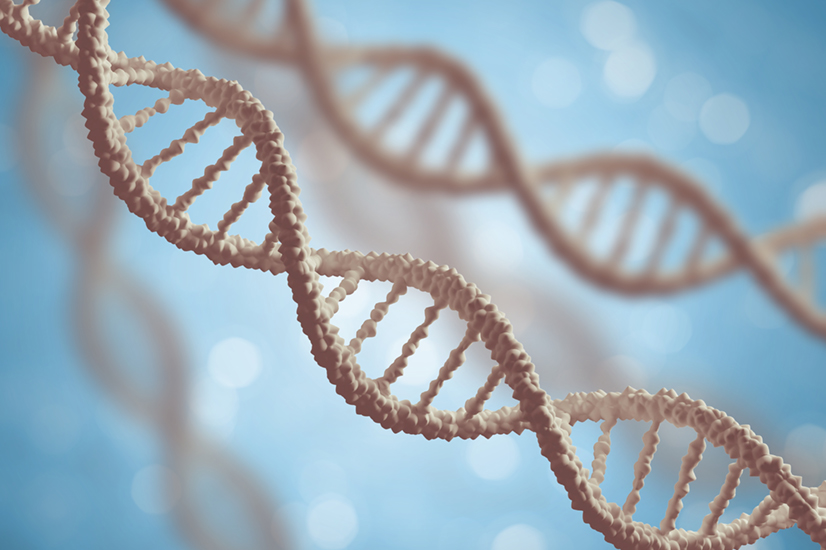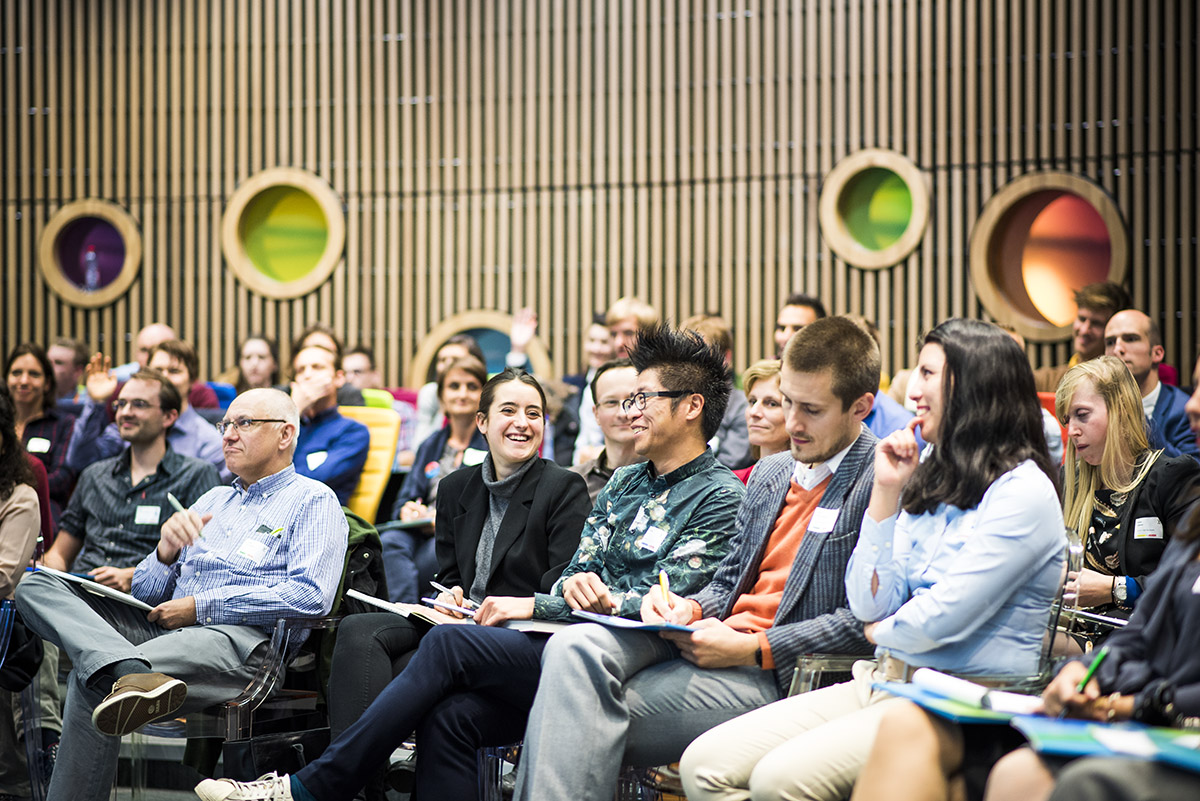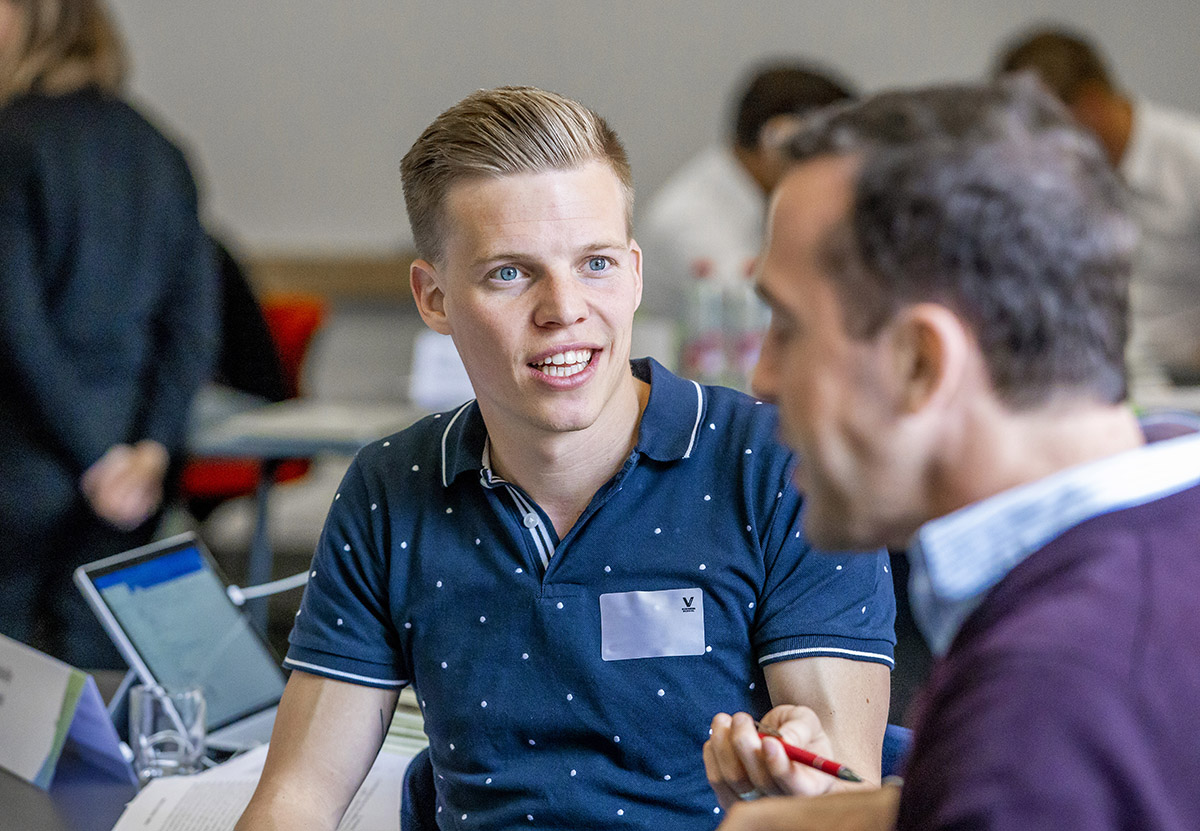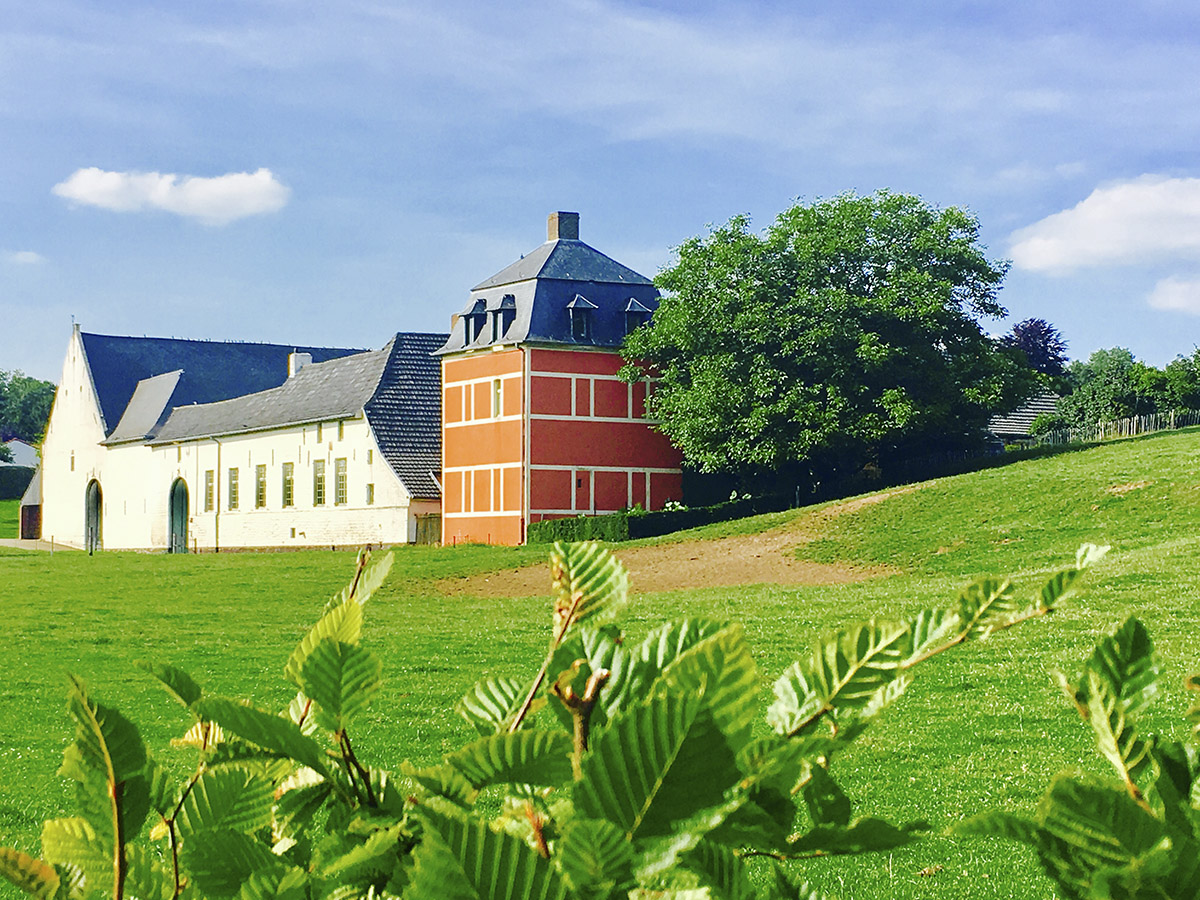CRISPRcon

Conversations on science, society and the future of gene editing
TEXT: KARIN VENEMA | PHOTOS © WAGENINGEN UNIVERSITY AND RESEARCH
After previous editions in Canada and America, Wageningen University and Research is proud to host the 2019 CRISPRcon event in the Netherlands. In this unique forum, a broad selection of voices come together to discuss the future of CRISPR and related gene-editing technologies across applications in agriculture, health, conservation and more.
CRISPR stands for clustered regularly interspaced short palindromic repeats, and CRISPR-Cas is a new technology that can be used to edit genes within organisms relatively simply, very accurately, and efficiently. It makes it possible to translate information obtained from DNA sequences quickly into plants with modified traits, and thus to increase the genetic variation available for plant breeding. The revolutionary CRISPR-Cas technique is currently attracting broad interest because of its potential contribution to improving the sustainability of food production, reducing environmental impacts, and improving human health. These applications also raise important questions about risks, benefits, ethics, equity and more.
Plant breeding
Europe’s highest court ruled in June 2018 that plant breeding using CRISPR-Cas constitutes genetic modification and should be regulated as such. This is not the case for conventionally mutated crops, made with techniques such as radiation and chemical treatments which cause many, random mutations but have already been in use since the 1930s, so there is a lot of knowledge about their safety. CRISPR-Cas is much more precise, but does not have that kind of track record yet, and therefore comes under the strict GMO regulation. The court’s decision was met with disbelief by biotechnology experts and plant breeders alike, especially because many other countries including the US, Canada and Japan have decided not to regulate as long as the introduced mutations are indistinguishable from natural mutations or classical mutagenesis.
How it works
“In lectures, I often clarify the technology with the tomato,” says Ernst van den Ende, managing director of the Plant Sciences Group of Wageningen University and Research. “The tomato has a genome of almost a billion DNA letters. When you compare a current commercial tomato with its wild ancestor, on average you see a difference of twenty million DNA letters. That difference came about through breeding and using radiation or chemical treatments, without regulation. With CRISPR-Cas just one or a few letters get changed in the DNA, but because it’s done in a laboratory, the European court considers it genetically modified.”
The court ruling is a spanner in the works for many scientist and plant breeding companies that would like to start using the fairly cheap and simple technology. “It’s such a shame, as the technology has so much to offer,” continues van den Ende.
Huge benefits
“Look at the work of Aurélie Jouanin: she recently obtained her doctorate in Wageningen and showed that you can use CRISPR-Cas to breed wheat with modified gluten so that people suffering from coeliac disease can eat it. There are other interesting applications, such as improving a crop’s resistance to disease. The Dutch government aims to reduce the use of crop protection products to zero by 2030. But how are we going to do that? There is an urgent need to come up with better, more resistant varieties soon. CRISPR-Cas could play a major role in this, but to enable this, the GMO directive needs to be amended.”
Speakers from across the world
Wageningen University and Research organises the CRISPRcon 2019 event together with Keystone Policy Centre. There will be many interesting speakers from all over the world discussing the promises and perils of gene editing. The programme advances broad dialogue across gene editing applications on whether and how these technologies should make the transition from the lab into society at large. “It’s important to have a social debate about the current situation in Europe,” says van den Ende. “We need to talk about where we want to go as a community and how we can start the dialogue on the possibilities and risks of this new breeding technique. In CRISPRcon we offer a stage to many different groups: research, education, NGOs, industry, consumers, politics, religious parties, and so on. We think this can help enormously in the current debate, which is very polarised. We hope to form bridges between proponents and opponents of this technique, all are welcome!”
CRISPRcon 2019 takes place on 20-21 June in Wageningen
Subscribe to Our Newsletter
Receive our monthly newsletter by email




